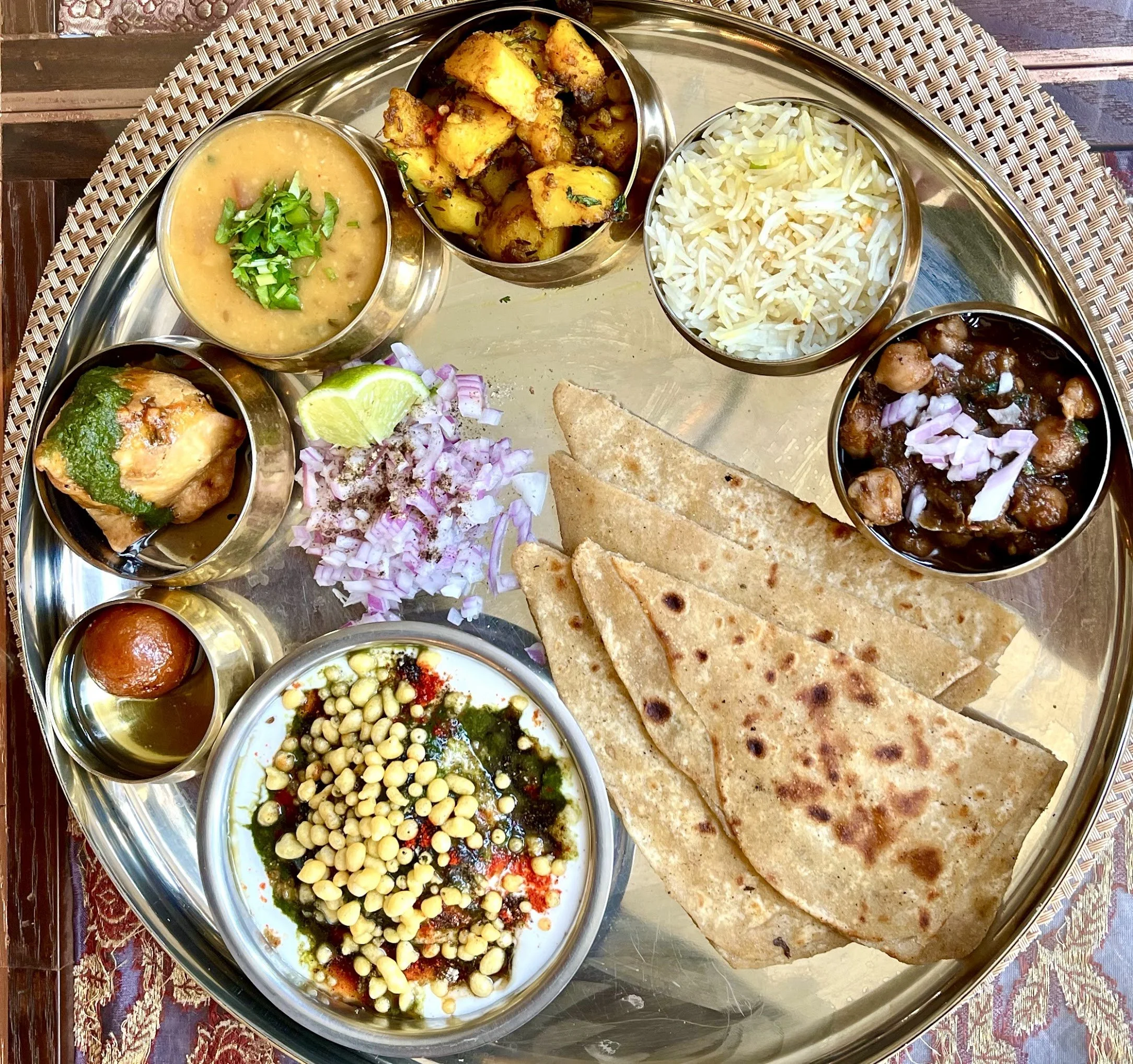The Lebanese Connection: Middle Eastern Cuisine in Mexico City
What many people think of as generic Middle Eastern Food is, in fact, Lebanese. Lebanon, a country whose history is fraught with conflict, is also a center of culture widely influential all over the Arab-speaking world.
By far the largest community of foreigners to arrive in Mexico is from Lebanon. Since the end of the 19th century, there have been several waves of immigration of people from Arabic speaking nations, principally Lebanon, but from Syria and Iraq as well. At present, there are upwards of 400,000 people in the country of Lebanese descent, mostly in Mexico City, Mérida and Puebla. Escaping the persecution of the rigid Ottoman regime, the first wave of immigrants arrived between 1880 and 1910, during the so-called Porfiriato, when Mexico received foreign immigrants with open arms. More came before and during World War II, once again to a post-revolutionary Mexico looking for some new input. A final wave arrived after the civil war of 1990. The majority are Orthodox Catholic, although some are Jewish and a few are Muslims. Many run garment and textile shops and factories, others, who settled in the Yucatan, became rich in the hemp industry. They all seem to have blended into a tightly knit community, despite religious differences. Illustrious Mexicans of Lebanese descent include moneybags Carlos Slim, glamour puss Salma Hayak, poet Jaime Sabines and underground diva Astrid Hadad. These days, most are people who were born here and have adapted to Mexican culture - they consider themselves Mexican and are not particularly connected to the homeland.
Naturally, Arab and Lebanese-Mexicans have left a distinctive mark on Mexican cooking. Ethnic groups who arrive in a new country where familiar ingredients are not available, always have to adapt, and so often the creative fusion of the old and new produces exciting new dishes. Most notable here is the spit roasted meat served as tacos and known all over the country as "al pastor". This quintessentially Mexican dish was born on the eastern shores of the Mediterranean as shawarma and is known in its first-genreration form here as tacos Arabes. The Mexicanized version, which developed in the capital, is made with pork, chili, and fresh pineapple.
Lebanese specialties that have been adapted are kibbeh, jocoque and stuffed grape leaves, here called tacos de parra. Kibbeh is a paste of ground meat (traditionally lamb but here, often pork or beef). In Mexico it’s sometimes called kebe and comes in various formats, sometimes raw, similar to steak tartar, or as a fried crusty ball (kebe bola). It is usually served with a green salsa or jocoque, a form of yogurt that has been drained of some of its liquid.
Stuffed grape leaves became tacos de parra, filled with seasoned rice and ground meat. Spinach turnovers here are called empanadas de espinaca, flavored with parsely and mint and spices. The ever popular garbanzo dip called hummus, the eggplant dip known as baba ganouj and the herb and bulgar salad called tabouleh are ubiquitous, and retain their distinctly Lebanese identity.
The flat bread called pita is served at all meals. It is perfect for scooping up hummus, baba ganouj, jocoque or kebe cruda. Pita is also served sprinkled with the spice mixture zahtar,baked in the oven and served as chips for dipping.
Lebanese desserts are sweetened with honey or sugar syrup, filled with nuts or dates and perfumed with orange and rose flower waters.
Amongst the many Middle Eastern and specifically Lebanese places I have tried, two stand out.
Restaurante Al Andalus
Mesones 171 (several blocks east of Pino Suarez)
Tel. 5522- 2528
Open daily 9-6
Branch: a small cafe in Colonia Napoles at Nueva York no. 91 Situated in a lovely 18th c. mansion in the centro, near many Arab-owned businesses, this restaurant opened its doors 15 years ago. Founded by chef Mohamed Mazeh, whose goal is to provide fresh and authentic foods and to dispel the idea that Lebanese cuisine is greasy or heavy. The large wood-beamed dining rooms look over an old patio at trees and other colonial buildings - it is hard to believe you are surrounded by the epi-center of the teeming centro.
A "plato Libanés" could be your whole lunch. All of its components are correctly done and beautifully presented. Composed of nine elements, the 'dips' are distinctly flavored, grape leaves fresh and retaining their texture, kepes crunchy and spicy and a typical rice and lentil mixture moist and toothsome. Other entradas are jocoque seco con anchoas (dry sour cream with anchovies); shashlish (a paste of anchovies, capers and fine herbes); falafel (a "croqueta" of fava and garbanzo); the kibbeh, here spelled 'kepes'. One of their specialties for innards-lovers is tripa de cordero rellena (stuffed tripe of lamb).
I recommend the taco de chorizo arabe, tender, aromatic chunks of spicy, tart chorizo bathed in jocoque and parsley and blanketed in a warm, freshly baked pita. Desserts are, as usual, the aforementioned very sweet honey cakes and the coffee is strong and fresh. Prices are reasonable – lunch for 2 should be $300-400 pesos.
El Jamil
Amsterdam 306, corner of Celaya, Condesa
Tel: 5564-9486
Open Monday-Saturday 2pm-11pm, Sunday 1pm-7pm
Mexico’s only truly authentic Lebanese restaurant is the dream-come-true of chef and owner Mohamed Jamil. He presides over every aspect of his restaurant – you will recognize him by his movie-star good looks. A native of Beirut, he studied hotel and restaurant management but his dream was to share his love of good cuisine. In Mexico he saw the opportunity to do something a little different – to create a higher end, cleaner “hipper” venue for fresh and creative Lebanese cuisine. “What most of the world thinks of as Middle eastern food is actually Lebanese,” he claims. “Our menu is 100% authentic, not the usual fusion of cultures. Someone came in and asked for cous cous recently” he recalls, bemusedly. (Cous cous, remember, is from North Africa, not the Middle East). “ I invited them to eat here and they were just blown away….they didn’t even miss the cous cous”. He imports some of his own products: cracked wheat, olives, oil and grape leaves are of the highest quality. There are standard mezze (appetizers) – I like the eggplant, sort of a deconstructed baba ganouj, redolent of its oven roasting and anointed with good green olive oil. Standout main dishes are the tender beef brochettes, and, my favorite (and the chef’s), fish filets in sesame sauce dotted with roast pine nuts. This dish will be a surprise to all who thought of Lebanese food as meaty and heavy. The decor is simple, the music authentic (Fairuz, the grand diva of Lebanese song reigns supreme), and the sidewalk tables, each with its own water pipe, have views of tree-lined Avenida Amsterdam. The food is clean and fresh, the bread hot and service attentive. El Jamil is a favorite of both locals and members of the tribe.
Also worth visiting are:
Café Jekemir
Isabel la Catolica 72, near Mesones, Centro
Tel: 5709-7038
Forget those ubiquitous Seattle-based chains. I make a trip to this place in the Centro to buy my Veracruzano coffee beans; they are the best as well as the cheapest. You can also sit here to have a cup of coffee and Lebanese pastries or light food. Owned and run by several generations of a Lebanese family, it is still presided over by the Guraieb sisters and, when he is able, their father Fred, son of the founder.
Adonis
Hegel 205, Polanco
Branch in Tecamachalco, Av. de Las Fuentes no. 49-B
Open daily Monday-Wednesday 1PM-12AM, Thursday-Saturday 1PM-2AM, Sunday 1–7PM
Tel. 5531- 6940/ 5531-8081
This well known Polanco venue serves generous portions of typical Lebanese fare including good hummus, tabule “tacos Arabes”, and kibbe. There is a well stocked shop around the corner featuring breads, olives and excellent Middle Eastern pastries.
H'elus
Rep. del Salvador 157, (between Las Cruces & Jesus Maria), Centro
Inside an unassuming doorway a few blocks east of the Zocaló, at the end of the dingy hall, is an excellent take away - great pastries both savory and sweet. It has been here since 1949 and is still run by the grandson of the founder. His name is Helu - is he related to Carlos Slim?
La Nueva Libanesa
Dr. Vertiz no. 1111, Colonia Navarte
Tel. 5575-4324
Open daily, 10-10PM
This family-style place offers a copious lunch-time buffet.
Restaurante Miguel
Córdoba 226, Colonia Roma
Open Sunday 10-8, Monday-Thursday 10-10, Friday, Saturday until 11PM.
This dependable restaurant, frequented by Lebanese Mexicans, offers an enormous buffet comida on Wednesday and Friday. If you are lucky, they will put out the superb roast leg of lamb. It's a deal at $150…
Ehden
Gante 11-A, Centro
Good Middle-eastern food is served at outdoor tables on this pedestrian-only street.
SELECTED COMMENTS:
Don Cuevas July 17, 2009 Thanks! We'll be in Mexico, D.F. next weekend, and El Jamil may be on our "must try" list. Saludos, Don Cuevas
Felipe July 18, 2009 You´re worth every penny you´re paid, señor.
Arin July 21, 2009 Wonderful topic! We have Lebanese family in Washington, DC, who own restaurants with fantastic -- and very healty -- food. Until now, we did not know where to begin to look for the tastes we already love and new variations. We'll be starting at Jamil's this weekend.







